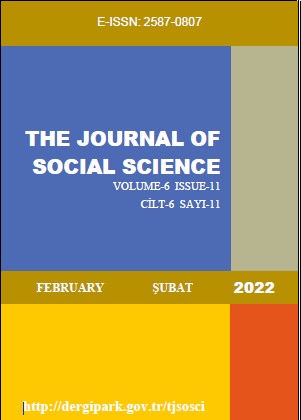HİKMET TEMEL AKARSU’NUN “ALELÂDELİK ÇAĞI” ROMANINDA MİMARLIK, KENT VE MİMARLIK ETİĞİ
ARCHITECTURE, CITY AND ARCHITECTURAL ETHICS IN HIKMET TEMEL AKARSU’S NOVEL “THE AGE OF ORDINARINESS”
Author(s): Müjgan ÖZTÜRK, Nevnihal ERDOĞANSubject(s): Architecture, Ethics / Practical Philosophy, Turkish Literature, Theory of Literature
Published by: Dicle Üniversitesi, Sivil Havacılık Yüksekokulu
Keywords: Hikmet Temel Akarsu; Lost Generation; Age of Ordinariness; Architecture in Literature; Ethics; Slum; Zeytinburnu; Zoning Amnesty;
Summary/Abstract: The first book in Hikmet Temel Akarsu’s four-volume novel series The Lost Generation, The Age of Ordinariness deals with human situations such as alienation, selfishness, loss of values, helplessness and purposelessness of the individual in the age of neo-liberalism through architecture, urbanism, distorted construction, rent economy and architectural ethics. The author conveys the conflict of the individual and society, the decay of the system and the transformation of cities in the painful development process in Turkey between the years 1968-1990, through the eyes of an architect. He explains the changes in political mobilization, social polarization and the effects of alienazation by presenting slicesof life, and produces a realistic and critical novel on architectural ethics. He explaines the drawbacks of today’s criteria of the value given to people being dependent only on self-interests, where the distorted characters created by the relationship between money and culture lead humanity, and the devastating consequences of the unavoidable growth of this understanding, and gives an example of a successful drama from the reflections of this process. In this respect, “The Age of the Ordinary” is worth examining as an original novel on architectural ethics.
Journal: The Journal of Social Science
- Issue Year: 6/2022
- Issue No: 11
- Page Range: 139-148
- Page Count: 10
- Language: Turkish

